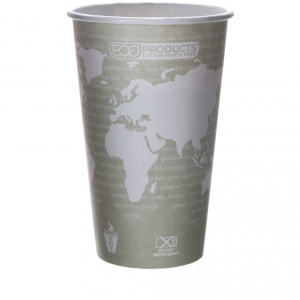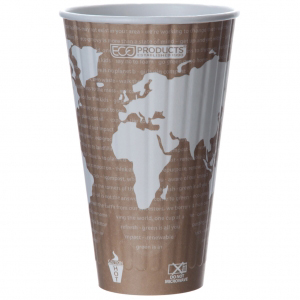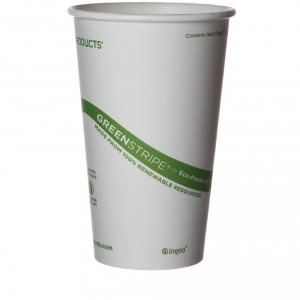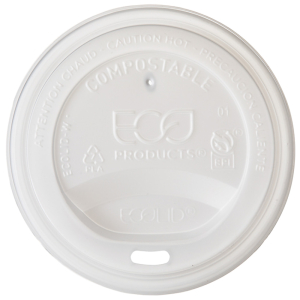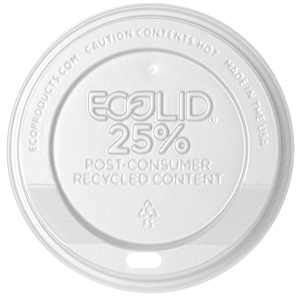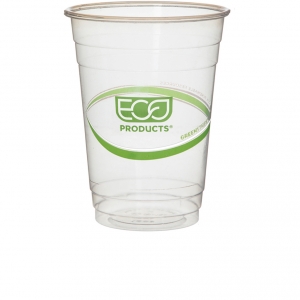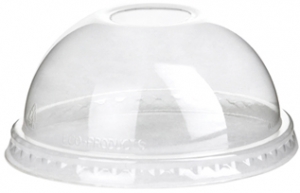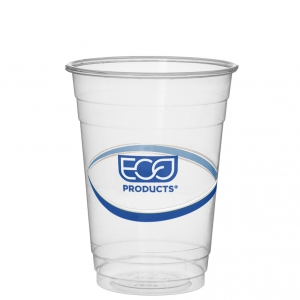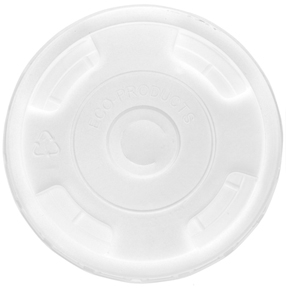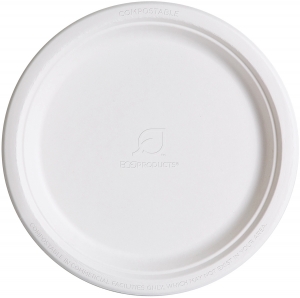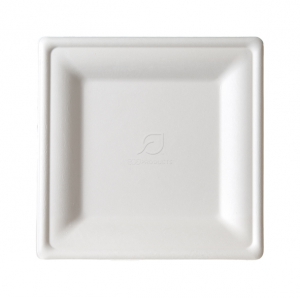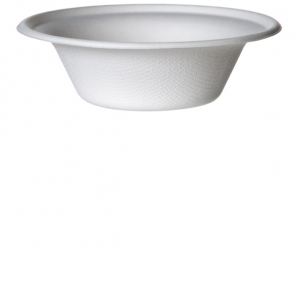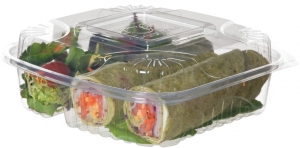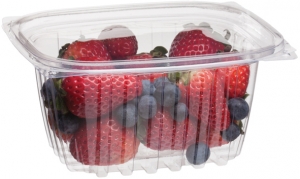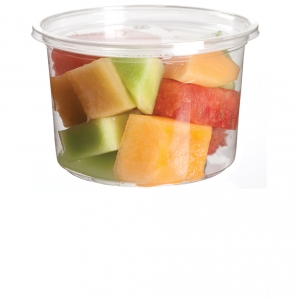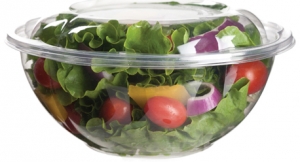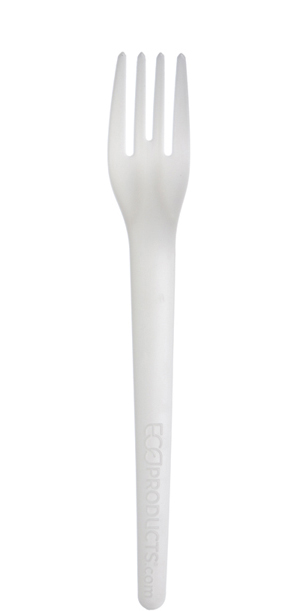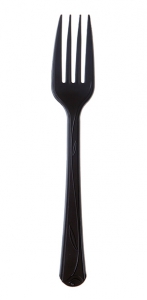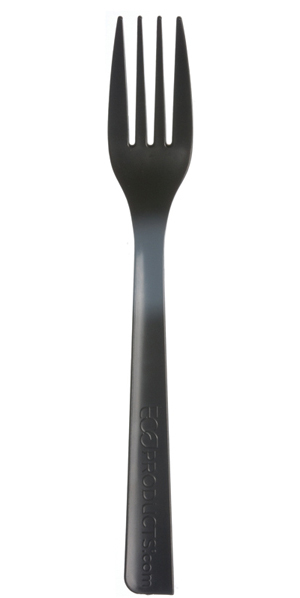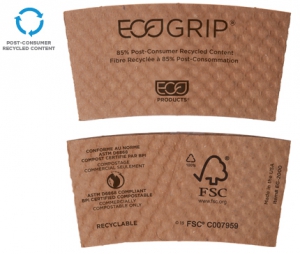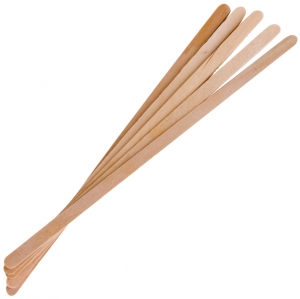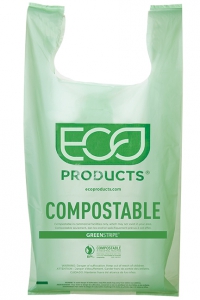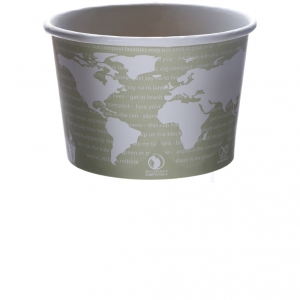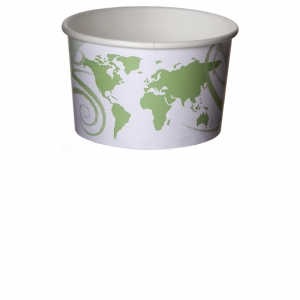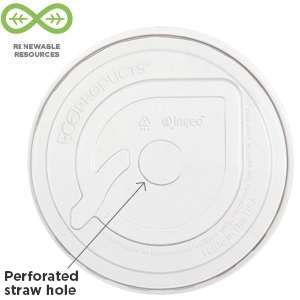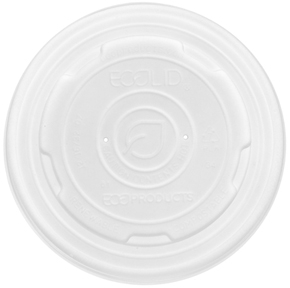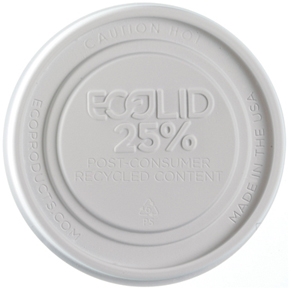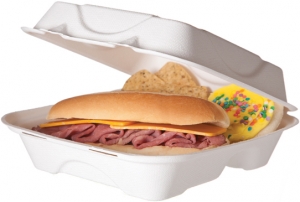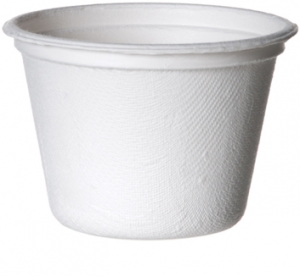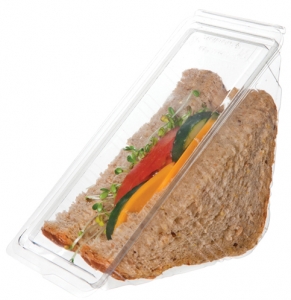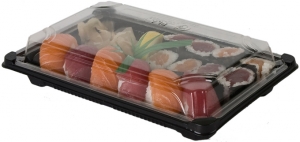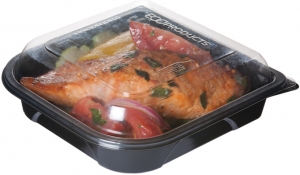Raw Materials
PLA or "corn plastic" is a biopolymer made from polylactic acid (PLA) that can be derived from starchy plants like corn, potatoes, tapioca, sugarcane, and soy protein. In the U.S., PLA is typically made from corn kernels that are milled and processed to extract the starch which is then converted into plastic.
PLA is FDA approved for food contact and well-suited for a variety of packaging applications, but it is not recommended for human or animal consumption.
While PLA is a corn-derived plastic, the extreme heat used in processing transforms it considerably and destroys any immunologically reactive profilin. Because of this, PLA should not cause an allergic reaction.
During the manufacturing of PLA, the multiple-stage processing and high heat used to create the polymer removes all traces of genetic material, rendering it inert once it has been made into resin. Therefore, there is no GM material in our products, even though the feedstock may be GM.
Nonetheless, we would prefer that only non-GM plants were used to make in the PLA in our products. We recognize the value of sustainable, organic agriculture and follow the debate and the scientific research surrounding GM crops. One day, we hope to bring you exclusively non-GM PLA, but unfortunately the infrastructure is not there yet for us – or our industry.
If GMOs are a concern for you, we offer our BlueStripe line of products made with post-consumer recycled content, such as recycled paper, PET, and polystyrene. These products do not contain any plant-based/GM material and perform very well. Learn more about BlueStripe here: http://www.ecoproducts.com/greenstripe_vs_bluestripe.html.
Currently, our major supplier of PLA uses the dextrose made from No. 2 yellow dent corn – the most abundant and cheapest source of a fermentable sugar available in the U.S. Less than one percent of the available U.S. corn crop is used for this purpose. In addition, only part of the corn kernel is used to make PLA. Other parts are used to make ingredients for salad dressing, snack foods, pet feed, and more, thereby allowing a single kernel of corn to produce both PLA and food products. We also source some PLA that is made from sugar. While we are not aware of any concerns about sugar-derived PLA taking away from the food supply, we are actively working to better understand the environmental and social issues related to our sugarcane supply chain. Check out our latest sustainability report to read more about this and other sustainability commitments.
While PLA is compostable, it will only biodegrade in the right conditions. Commercial compost facilities have the capacity to maintain ideal composting conditions and sustained heat and moisture needed for PLA to break down entirely with the appropriate soil bacteria, yeast, and fungi. In a landfill, our products are stable and do not breakdown readily. Landfills are anaerobic environments that are sealed. PLA does not degrade readily in these situations and according to our suppliers of PLA, it is not a significant contributor to landfill methane. We recommend disposing of PLA products in a commercial compost facility only.
Yes. We recommend that our PLA containers be stored at temperatures less than 105°F (40°C). Remember to keep these products out of direct sunlight and in a cool, dry place. Keep in mind that our Plantware™ cutlery is made with a slightly different process that gives it a heat tolerance of about 200°F (93°C).
Bagasse/sugarcane is a byproduct of making sugar. When sugarcane stalks are harvested, they're pressed to release their juices that get processed into sugar. Then, rather than burning or throwing the used sugarcane stalks away, the fibrous pulp is made into a paper-like substance called bagasse which is then formed into a wide variety of products like containers, plates, and bowls.
Bagasse, or sugarcane, is fully compostable and breaks down best in commercial compost facilities. In commercial composting conditions, bagasse will compost in approximately 45-60 days.
No. Our sugarcane products are not GMO free. This would require sourcing only certified organic sugarcane. Since the sugarcane used in our products is grown in Asia and is not certified USDA organic, we cannot assure that it is free of GMO material.
rPET is recycled PET (or Polyethylene terephthalate) plastic. PET is it is one of the most common plastics in the world. You have probably seen this plastic in your soda and water bottles that are marked with the resin code #1. PET is originally produced from fossil fuels — typically natural gas and petroleum, but it is one of the easiest plastics to recycle.
We use post-consumer recycled PET plastic in our cups and containers. That way the recycled resin, rPET, becomes more accepted and valuable as people see how easy it is to include in regular items.
In short, probably not.
Our BlueStripe™ items are made from post-consumer recycled PET plastic, polystyrene or fiber, so we are excited to give a second (or third) life to these materials. Unfortunately, it can be hard for some recycling facilities to capture these items – instead, their environmental benefit lies in their front end materials.
Each recycling facility has different machinery for sorting and sells recycled flake to different markets. This is why recycling varies in each town. Only your recycling facility can tell you what the accept, so check with them first. Remember to check for different shapes of product as well as the resin codes. Most facilities want #1 PET or rPET plastic bottles, but not all of them can accept foodservice or container shapes.
For these items, please dispose of them responsibly and only recycle them if they are accepted. Coming soon! There are some regions where #1 PET recycling has expanded and you can put our BlueStripe™ PET items in the recycling bin. It's not everywhere yet, but hopefully one day soon. We encourage you to check with your local municipality or materials recovered facility (MRF for short) to see if they are accepted and if not, to learn when they will be.

